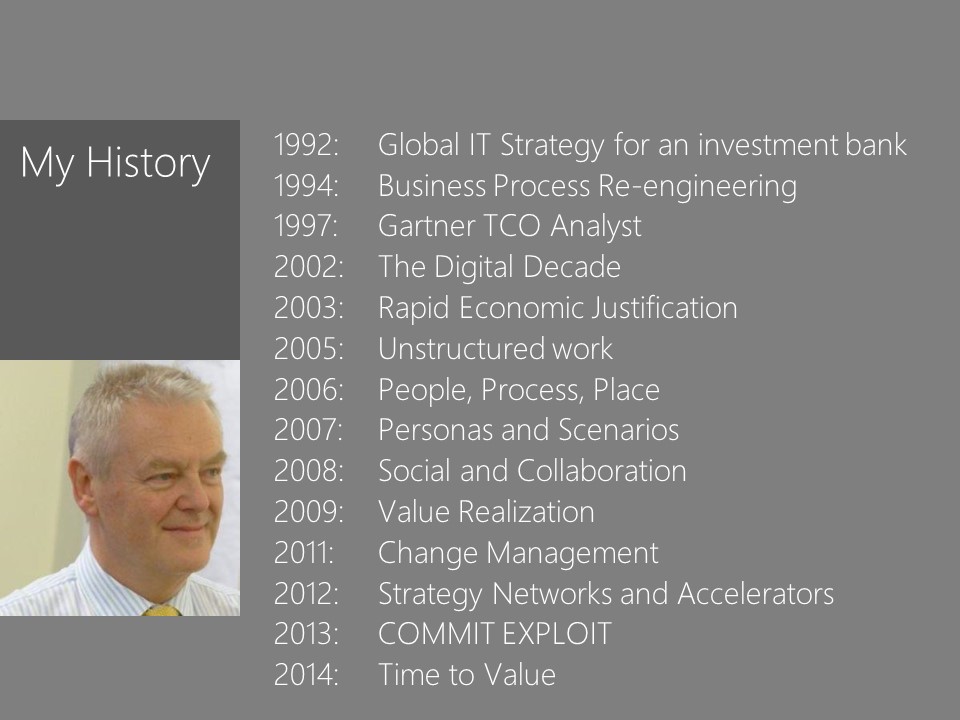Time is the new value
First published Tuesday, 09 Sep 2014 16:56As I look back over the years at topics I have focused on and although not really planned, it really does all fit together; a commitment to help align business and technology, drive value and focus on outcomes. I am writing another article called "A History of Value", but for now let’s fast forward to 2009.

Topics I have focused over the years.
I have spent quite some portion of my career talking about Value = Benefits – Costs. We usually obfuscate this simple equation using the summation of time series cash flows (positive benefits and negative costs), risk adjusted and blah, blah, blah. The concepts of Value are simple and connect directly with words like Usage, Adoption and recently Consumption. It matches the COMMIT-EXPLOIT findings from MIT-CISR in 2011. But over the past months, I came to question my focus on value. What heresy is this you say?
So how do we reduce time? We plan quicker, build quicker, deploy quicker and ensure the users get up to speed quicker. In other words we accelerate the change; this also reduces risk and therefore reduces the need for contingency. We may even decrease costs (harder to spend money if there is less elapsed time). So we talk to the business about getting time back, not promised benefits.

Wikipedia defines NPV as “a standard method for using the time value of money to appraise long-term projects. Used for capital budgeting and widely used throughout economics, finance, and accounting, it measures the excess or shortfall of cash flows, in present value terms, above the cost of funds where R is the net cash flow for the period.
One last thought, which is the real magic. Even the improved NPV pales into insignificance if you reduce the time to value. Because you have given the organization back the most precious thing – time. They now have the time saved, in a desired future state, adoption done, people ready, risks mitigated, change completed and reinforced. Go smoke the competition, enter new markets or even, do more change. This is what I am going to explore, giving back time is the new value.
OK, so I am adding this comment myself but I just wanted to record that Tom Peters obviously agrees with me about the importance of time: The only thing on earth that never lies to you is your calendar. That’s why I’m a fanatic on the topic of time management. But when you use that term, people think, “Here’s an adult with a brain. And he’s teaching time management. Find something more important, please.” But something more important doesn’t exist.
More at McKinsey.com for the full article or watch some of his other short videos.